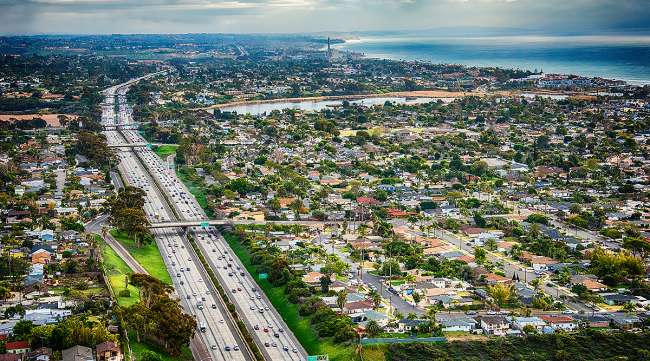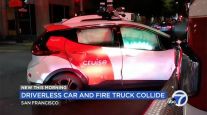Staff Reporter
California DMV OKs Light-Duty Autonomous Delivery Vehicles

[Stay on top of transportation news: Get TTNews in your inbox.]
California has authorized the testing and commercial use of light-duty autonomous delivery vehicles on public roads.
The California Department of Motor Vehicles announced Dec. 17 that, with an approved permit from the department, companies can operate autonomous delivery vehicles weighing fewer than 10,001 pounds. Qualifying vehicles include cargo vans, midsize pickup trucks and autonomous passenger cars.
Companies can test their autonomous delivery service with or without a safety driver in the vehicle, depending on the permit. To charge a delivery fee, companies need to apply for a deployment or commercial use permit with the DMV.
“The adoption of these regulations means Californians soon could receive deliveries from an autonomous vehicle, provided the company fulfills the requirements,” DMV Director Steve Gordon said. “As always, public safety is our primary focus.”

Gordon
According to DMV’s announcement, autonomous delivery vehicles will be required to comply with the same application requirements that are in place for the testing and deployment of autonomous passenger vehicles. Autonomous vehicles that weigh more than 10,001 pounds still are excluded from DMV’s regulations.
To test with a safety driver, companies must certify that vehicles have been tested in controlled conditions that replicate the driving environment in which they are designed to operate. Companies also are required to maintain a training program for test drivers and ensure their test drivers have clean driving records and are capable of manually controlling the vehicle as needed. The companies need to submit collision reports to DMV within 10 days.
Driverless testing requires companies to certify that local authorities, whose jurisdiction covers where the vehicles will be tested, have been provided written notification. The autonomous test vehicle must be equipped with a communication system that links the vehicle and the remote operator, as well as the vehicle and law enforcement. Law enforcement officers must receive a copy of a “law enforcement interaction plan” from the companies.
Additionally, those looking to test in driverless conditions need to certify that the vehicle satisfies all Federal Motor Vehicle Safety Standards and meets the technology description of a Level 4 or Level 5 vehicle as spelled out by the Society of Automotive Engineers International. Companies also must certify that vehicles have been properly tested in controlled conditions, inform DMV of the intended operational design domains, maintain a training program for remote operations and submit collision reports to DMV within 10 days.
Tested vehicles must be equipped with an autonomous vehicle data recorder and meet industry standards for withstanding cyberattacks or false vehicle control commands.
According to DMV, some 65 companies, including Tesla Inc., TuSimple, Honda and Ford Motor Co., have valid permits to test autonomous vehicles with a safety driver on California public roadways. Waymo holds a permit to test driverless autonomous vehicles.
Want more news? Listen to today's daily briefing:




